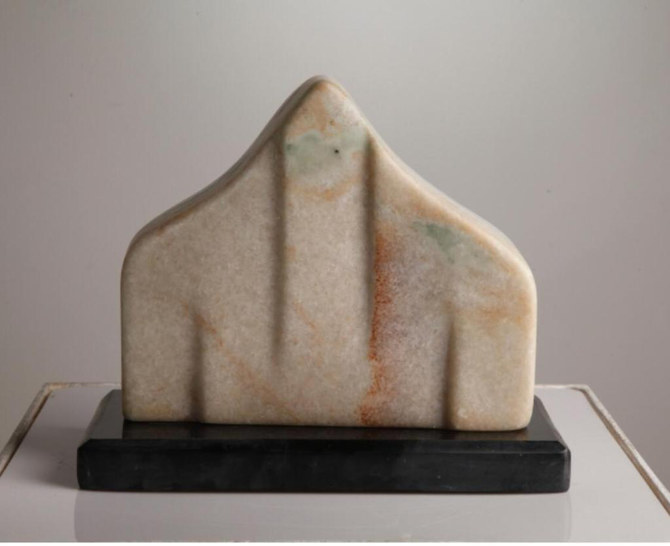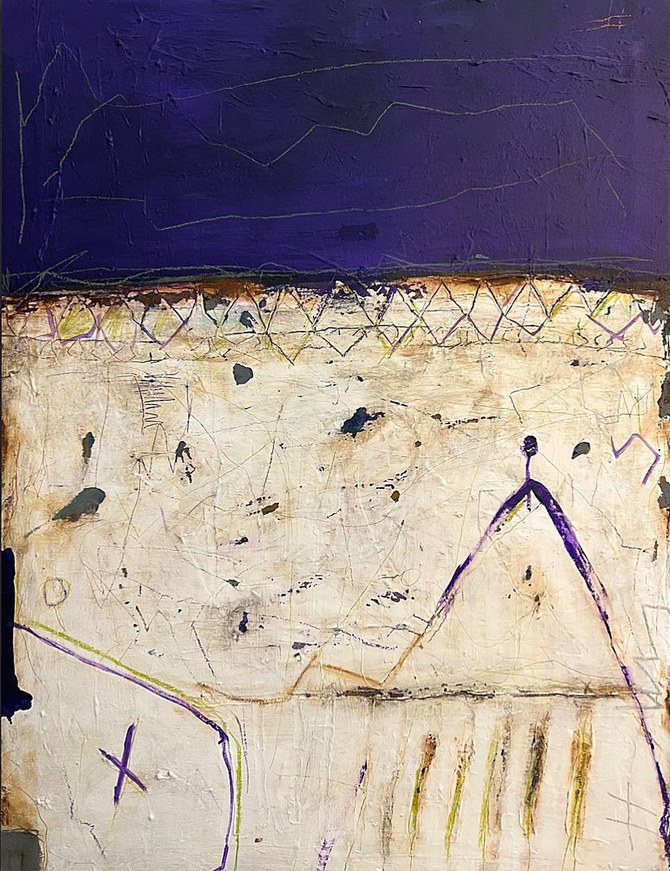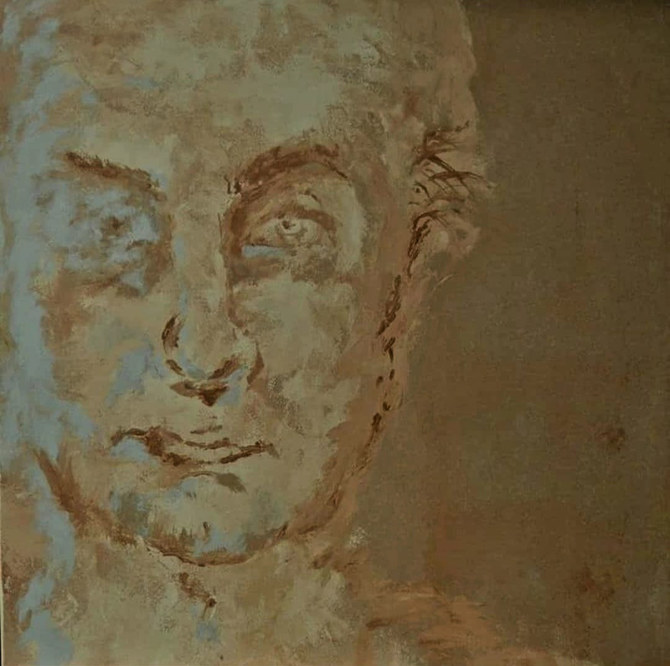RIYADH: Art has always been a tool to express individuality, but an exhibition running at Sima Creative Space in Riyadh has been showcasing its universal power to bridge collective experiences.
And some of the proceeds from the exhibition’s sales will be donated to the Saudi aid agency KSrelief to help toward humanitarian relief work in Gaza.
Under the title “Attributes,” the space is hosting a collection of works curated by Dana Qabbani that explore diverse and intricate collective and individual experiences.
Eidah Al-Zahrani is a Saudi artist whose philosophy tends to immortalize aesthetic effects and create discourse through visual art. Inspired by the depth and authenticity of the past, her works aim to revisualize scenes of the past as she viewed them as a child.
Her two abstract paintings on display at the exhibition — which runs until Nov. 7 — are derived from memories of her own childhood home, where the walls were accented with cracks and scratches. Her older self was inspired to create vibrant pieces of work resembling the physical characteristics of the vessel that shaped her.
Al-Zahrani told Arab News: “I call my paintings survival of impact because they’re remains of memories and the past, and a nostalgia to that past and my old home but employed as a contemporary artform.”
Since launching her artistic career in 2015, she has become known for her use of colors, relying on her intuition.
At the center of the space on podiums are two sculptural works by artist Talal Altukhaes. Made of gray marble, “Struggle with a Point” goes back to the origins of the Arabic language.
At their inception, Arabic letters were derived from the dots that distinguish them from one another and were considered an additional aspect that was integrated later. But at the time, the sentences were deciphered regardless.
In the sculpture, the dot is much larger and overwhelms the letter itself, becoming the center of the piece.
Altukhaes told Arab News: “The additional or secondary aspects of our lives today have become much more prominent than the primary. There’s a conflict between them. It’s an outward discussion that speaks to the balance between things, which I think many people can relate to.”
A larger version of the sculpture is currently displayed at Richard Bodeker Park in Riyadh’s Diplomatic Quarter.
His adjacent work aims to educate the public masses on art and its soft power. The decorative marble piece, if observed closely, shapes the word Allah in the Arabic language, serving the artist’s intent to integrate culture and religion into public artforms.
He said: “We can’t force people to venture into art galleries, but having exhibitions in spaces like these, where people can discuss the works over coffee, makes it more accessible to the public.”





























